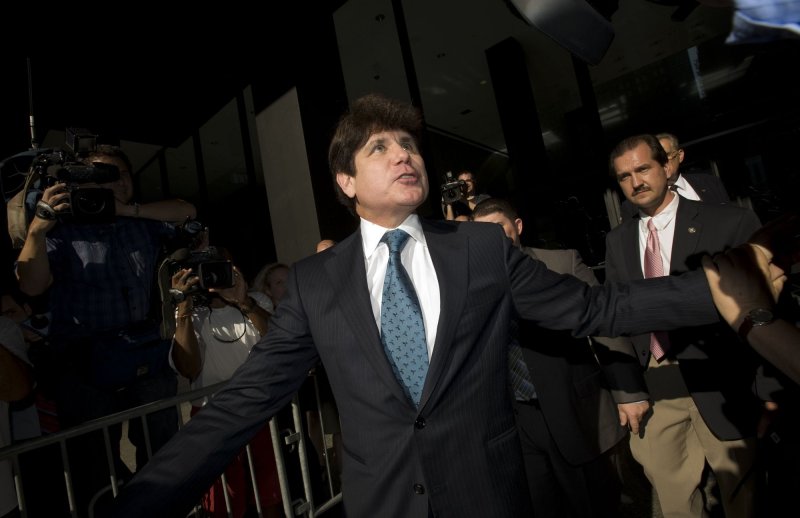Former Illinois Gov. Rod Blagojevich leaves federal court after hearing that the jury cannot agree unanimously on every count during his corruption trial in Chicago on August 11, 2010. The Blagojevich jury was expected to continue deliberations. UPI/Stephen J. Carrera |
License Photo
CHICAGO, Feb. 14 (UPI) -- Prosecutors in Illinois say former Gov. Rod Blagojevich's claim that unreleased recordings show he is innocent is "a rehash" of arguments he made in his trial.
In filings submitted in federal court in Chicago, Blagojevich's legal team asserts he was trying to arrange state Attorney General Lisa Madigan's appointment to Barack Obama's U.S. Senate seat, not "sell" the post, ABC News reported.
The ousted governor has asked to play previously undisclosed recordings in court because they "establish the evolution of Blagojevich's thought process" and "prove his innocent intent," his attorneys argued.
Blagojevich was convicted on only one of 24 counts last year, but prosecutors are attempting to retry him.
The lawyers say there is a "missing" recording from a Dec. 8, 2008, phone call between a Blagojevich aide and Rahm Emanuel, an Obama aide who would become the White House chief of staff in January.
Blagojevich says Emanuel, now running for mayor of Chicago, offered a deal to give Madigan the seat and help the governor pass a legislative package. Last week, Emanuel said an internal administration probe found "nothing inappropriate or any deal-making."
U.S. Attorney Patrick Fitzgerald, in documents filed Monday, said Blagojevich's argument raises "no new argument or legal theory" for admitting recordings into evidence that the court previously ruled were inadmissible.
"The defendant's motion is nothing more than a rehash of the same arguments he made for admission of recordings in the first trial," Fitzgerald said. "The Court has previously ruled on these requests, and the same ruling should apply absent new argument or law, neither of which presented in the instant motion."















